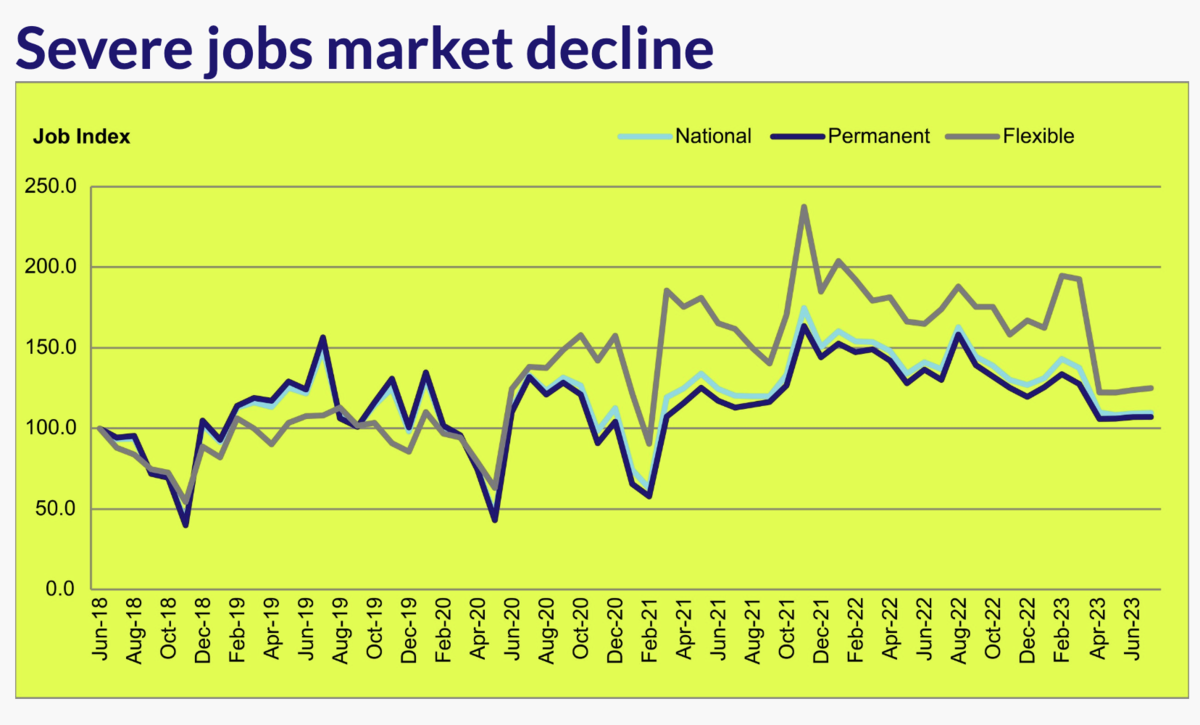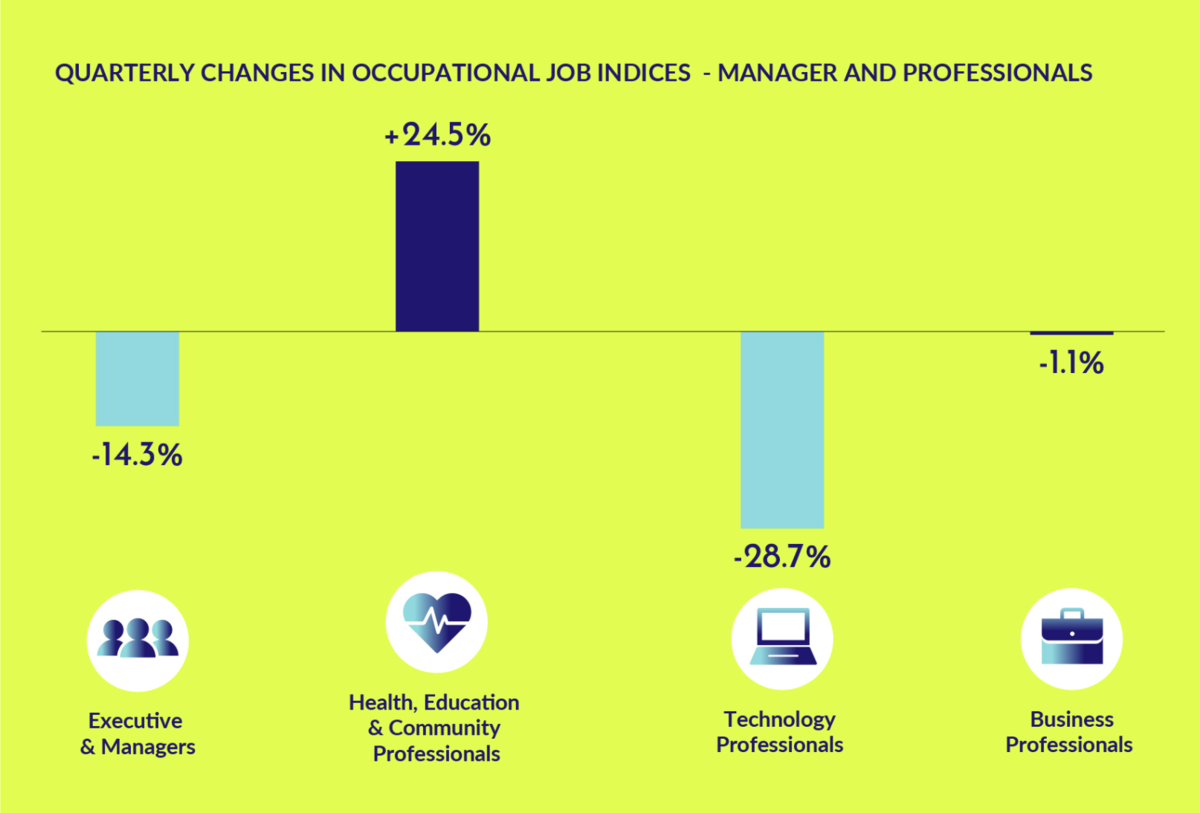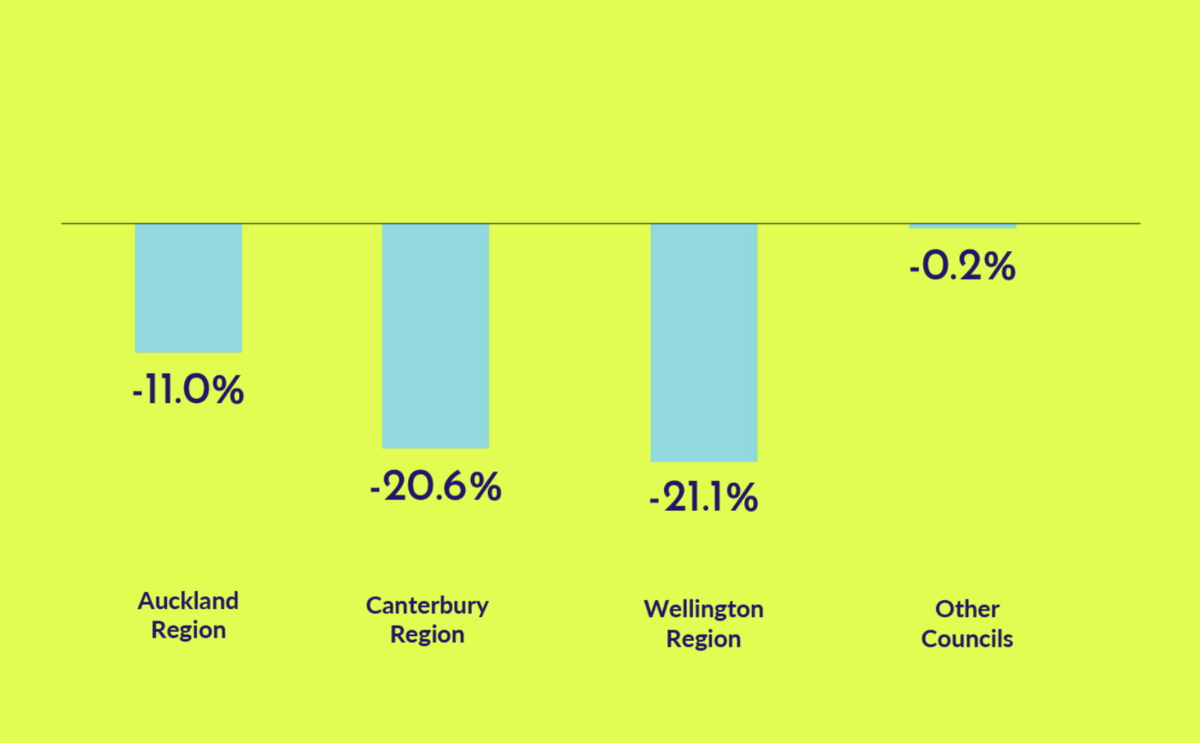Tech job listings take a dive
New Zealand’s job listings have “taken a nose dive” according to RCSA, the peak body for recruitment companies, with listings tech-related roles seeing the greatest decline.
It’s all part of a sharp correction in a sluggish economy following strong consecutive quarters for tech through 2021 and 2022, according to RCSA's quarterly Jobs Report, but with lingering and severe skills shortages, it suggests some employers have simply stopped looking for staff.
Job postings for technology professionals roles dropped 28.7% in the three months to June 30, according to the Recruitment, Consulting & Staffing Association. Overall, online job listings dropped 10.8% during the quarter, and are down 23.7% on a year ago, recruiters report the market is still strong. Unemployment is low at 3.4% but is tipped to rise in the second half of 2023.

Source: RCSA
“Demand for tech professionals has been “decimated by the withdrawal of startup funding by venture capital,” according to RCSA.
“Projects that cannot demonstrate a commercial outcome are being abandoned. Contracts are being terminated early or not renewed. This sector has tended to pay top dollar too, so contract rates are in decline.”
Listen to the Business of Tech podcast, featuring RCSA's Brooke Lord tlaking about the tech-related insights from the Jobs Report.
New Zealand’s startup scene is relatively small, so the big drop suggests established tech companies like Xero and Datacom, as well as companies with significant tech divisions, are scaling back on recruitment.
“The data suggests that New Zealand is very much in the thick of economic downturn, with the country officially in recession and job ads declining steeply in recent months,” says RCSA’s chief executive, Charles Cameron.
“The country’s skills shortage is so dire, it’s highly likely that businesses have halted recruitment efforts because of the severe lack of talent. Add in recent natural disasters, economic challenges and a looming election, it is little wonder the job market has been impacted.”

Source: RCSA
Tech joins most categories in experiencing large declines in job listings with accommodation and food Services down 36.6%, and service and community workers down 26.7%. The only bright spot in job listings was for health, education and community professionals, which have all been the subject of extensive recruitment campaigns. The category was up 24.5% last quarter.
“The opening up of international borders has helped supply in many key occupations but shortages persist,” RCSA reported.
The soft job listings data extended to the Professional, Scientific and Technical category, which recorded a contraction of 12.3% and captures a host of tech-related consulting roles.
“Job postings have been weak for some time but the fallout from the PwC saga in Australia has the “Big Four” treading very carefully in the region. As major employers in Professional Services in New Zealand this will affect job posting numbers until confidence returns,” says RCSA.
Demand remains “very weak” in education and training which fell 21.8%. The university sector in particular froze hiring and cut staff numbers during the period.
Wellington and Canterbury suffered the largest declines, 21.1% and 20.6% respectively.
Flexible working positions have also taken a hit, falling 25% in the three months to june 30, after rising in the prior quarter.
“Casual work for school leavers and graduates has eased considerably. There may be some statistical correction taking place, but the decline is significant by any benchmark. By comparison Permanent job opportunities have fallen just 7.0% over the same period,” says RSCA.

Source: RCSA
About the data: The New Zealand Jobs Index is a measure of where job postings exist in the New Zealand employment market. Data is collected from employer, recruiter and niche job boards across New Zealand. Repeat advertisements on one site or across multiple sites are de-duplicated to avoid double counting. Artificial intelligence is used to code every job advertisement into a wide range of key fields from which detailed analysis is possible.
